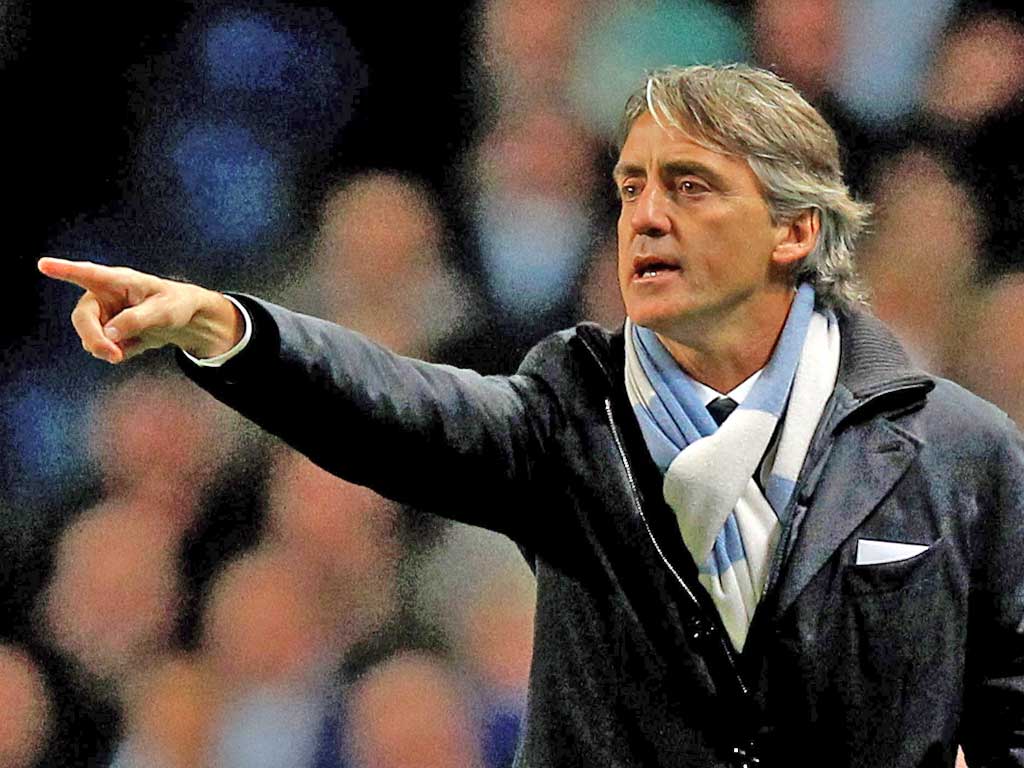Sam Wallace: Spending big was only way for City to gatecrash party

Your support helps us to tell the story
From reproductive rights to climate change to Big Tech, The Independent is on the ground when the story is developing. Whether it's investigating the financials of Elon Musk's pro-Trump PAC or producing our latest documentary, 'The A Word', which shines a light on the American women fighting for reproductive rights, we know how important it is to parse out the facts from the messaging.
At such a critical moment in US history, we need reporters on the ground. Your donation allows us to keep sending journalists to speak to both sides of the story.
The Independent is trusted by Americans across the entire political spectrum. And unlike many other quality news outlets, we choose not to lock Americans out of our reporting and analysis with paywalls. We believe quality journalism should be available to everyone, paid for by those who can afford it.
Your support makes all the difference.Four years ago, just months before Sheikh Mansour bought Manchester City, the club finished the 2007-2008 season in ninth place and 32 points behind Manchester United, that season's champions. After that, the final-table gap to United jumped to 40 points in 2009, then down to 18 in 2010 and it was nine last season. Win tonight and City could be level on points with United with three games to play.
It would be nice to say that City had fought their way to the top of the Premier League with a team of young players moulded by the club and a manager who had cut his teeth in the lower divisions. But the truth is that City team would not have been permitted to survive. As soon as they came within touching distance of the elite, the best players would have been picked off by bigger, richer clubs. The manager would have been lured away with promises of more money and better players. They would have lit up the league for a while and then, like the proverbial Mario Balotelli firework, fallen quickly.
The City that play United tonight are robust. The wages they pay mean that they are insured against losing players to the establishment teams, and there are none more established than United. Their Abu Dhabi owners have spent roughly £800m to get them there. These days, buying the players is no longer a guarantee of long-term success, you have to buttress your squad against the predators too.
Woody Allen once famously compared a relationship to a shark: "It has to move forward or it dies." In the Premier League, the stakes are higher. Moving forward is not enough, as the likes of Tottenham Hotspur and Aston Villa have found out. The quicker and the further you move forward, the more chance you have of being eaten. The only alternative is to develop a bloody sharp set of teeth and eat someone else first.
It will be interesting to see what fate befalls Newcastle United in the next 12 months, having become the latest club to challenge the elite for a Champions League place. Tottenham did so in the past and after their two fifth-place finishes in 2006 and 2007 they eventually lost Michael Carrick and Dimitar Berbatov. Their second wave of success under Harry Redknapp means they will probably lose Luka Modric and Gareth Bale to bigger, richer clubs.
Would it be better for City to be playing United as almost-equals for the league title tonight without the help of a Middle East dynasty? Of course. Just as Chelsea would rather have had the success of the last nine years without the approximate £1bn that Roman Abramovich has invested. At both clubs the question of money is a sensitive subject.
We would all like our clubs to succeed with a team made up of academy lads and a break-even budget. But City or Chelsea would never have caught the elite that way. They would have been picked off before they even reached the door. Chelsea qualified for the Champions League in the 2002-2003 season but they did so having gone to the brink of their resources. Their only signing that season was Enrique de Lucas. By the time City hit paydirt in 2008, it had become even harder to break into the top four.
Chelsea have already made £45m from the competition this year, with a further £2.8m if they win the final. That does not include the matchday revenue from their six home games. City have earned £21.3m from their first year in the Champions League – a drop in the ocean for them until you consider that last season's Europa League campaign was worth a relatively paltry £4.5m.
The Champions League is the only show in town. The billionaires who have pumped money into City and Chelsea know that. They want to get into it and stay there so they can stop spending so much. Both clubs have invested heavily in academies, and academy players. Abramovich even now supports Uefa's financial fair play, according to Michel Platini, the Uefa president. "Your revenue stream is not going to come unless you get into the top four," City's former chief executive Garry Cook said in July 2009. "That means bringing in players to get you there and spending above the odds on wages before the revenues start flowing."
Join our commenting forum
Join thought-provoking conversations, follow other Independent readers and see their replies
Comments